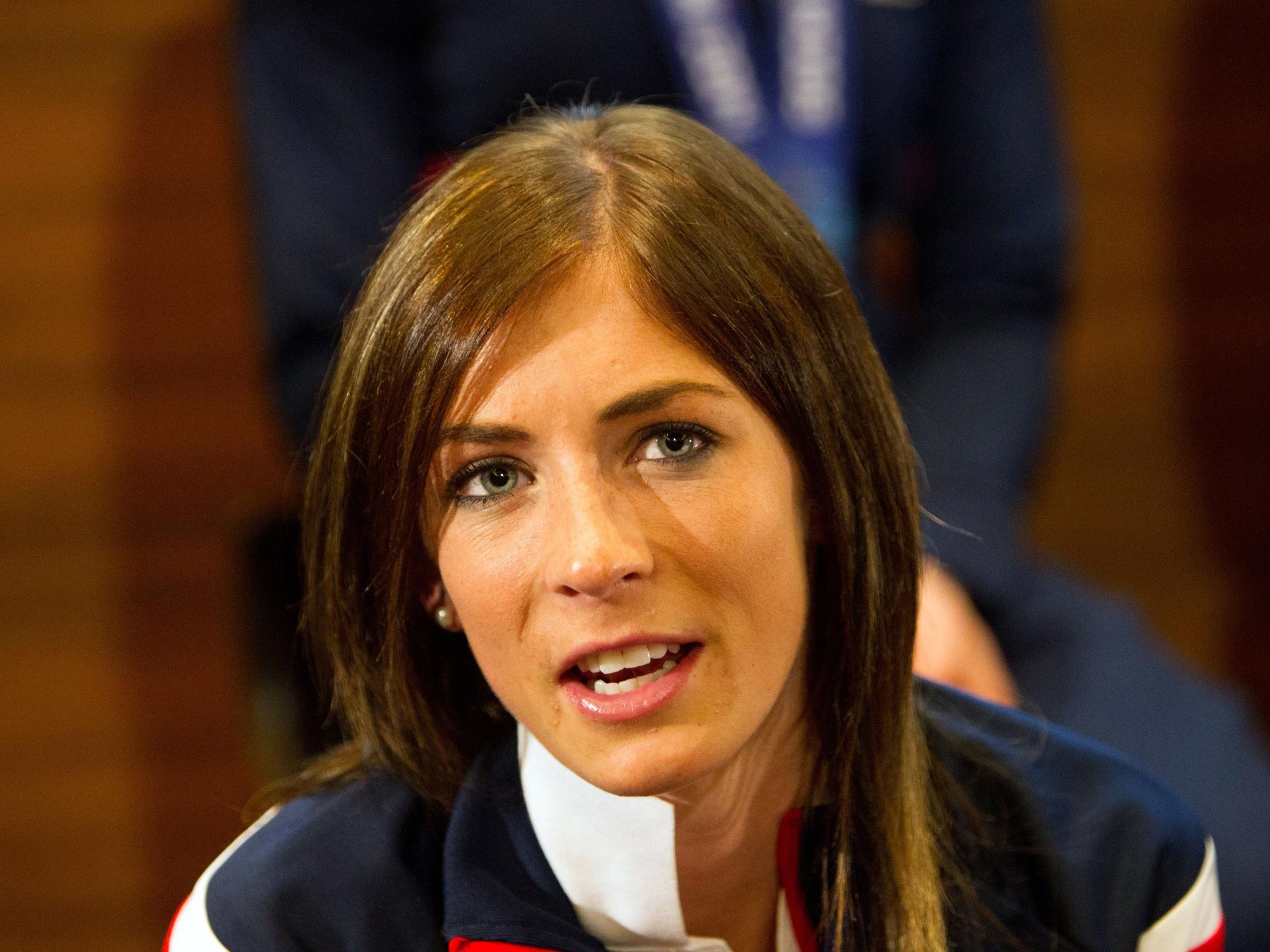Winter Olympics 2014: Eve Muirhead says winning for Team GB is extra special as Olympians return from Sochi
'It’s a great feeling to be part of Team GB and not just Team Scotland'

Eve Muirhead sent a curved stone into the house of Alex Salmond last night, claiming that returning a medal in the service of Great Britain at the Winter Olympics was that bit more special than delivering for Scotland alone. And you thought the debate about Scottish independence was all about oil.
Muirhead, who led the women's curlers to bronze in Sochi, can look forward to a gold medal from David Cameron when Team GB visit No 10 for the obligatory tea with the Prime Minister. She might even be a dame by then.
Asked about the Scottish question and how she might feel about the issue of representation, Muirhead said: "For our curling teams, nine times out of 10 we represent Scotland at the European and World Championships, and that's a great honour to have your country on your back, but when it comes to the Olympic Games and you get a chance to represent Team GB, it makes it extra special.
"You're one big team and we're all together and it's a great, great feeling to know when you step on that ice that you are part of Team Great Britain and not just part of Team Scotland."
Not much equivocation there. Muirhead was speaking at Heathrow alongside her medal-winning colleagues after arriving back from Russia. No such complexity attached to the words of Lizzy Yarnold, who already looks as comfortable with celebrity as she does on her bob skeleton.
Winter Olympics 2014: A fortnight in Sochi
Show all 12Having flown back to the UK to appear on The Jonathan Ross Show last weekend, she returned to Sochi to carry the British flag at the closing ceremony, admitting she had been more nervous ahead of the showpiece finale than she had been going for gold head first at 80mph.
"It was the most frightening experience of the last two weeks," Yarnold said. "I was separated from the rest of the team for the last two hours. I heard only the day before. It was a great honour but there was no flag-waving practice, unfortunately. I was crying before walking out into the stadium. I felt like there was more pressure because it was so meaningful to me. I have so much respect for everyone involved."
"It was crazy, we didn't speak for about two hours when we turned back on. Stuff like ‘take your broom to work day' on the BBC. It is great to see the sport taking off, fantastic to grow our sport," she said.
Chef de mission, former curler Mike Hay, paid tribute to all the British athletes who competed, and heaped praise on those who brought home the biggest winter medal haul since 1924. "The Games provide a great platform for winter sports and we are optimistic about the future. Hopefully, the funding will follow. The national bodies have been incredible across the board. The medals offer great profile.
"I was a little disappointed that we maybe left a couple of medals out in Sochi, but we exceeded our target. I have been to four Games and this one was right up there, a sensational opening and closing ceremony and great atmosphere."
The elite athletes shared £13.4 m in this Olympic cycle, a sum that will rise in June when funding for South Korea in 2018 is announced. The success of Jenny Jones, who won Britain's first medal of the Games, bronze in the snowboard slopestyle, is expected to boost funding for the discipline, which was set at £1.5m for Sochi.
The extra cash would allow Britain to establish a regular training base in the US to push the claims of James Woods, Katie Summerhayes and Rowan Cheshire four years hence.
The UK Sport chief executive, Liz Nicholl, responding to the question of where and how public money is distributed, said: "Following so many outstanding performances in Sochi I anticipate that there will be an increase in our investment in to winter sports.
"What London [2012] did was show that investment in elite sport can have a positive impact on the British public. We're charged by government to invest the money we've got to build on the success of London. When we make announcements about the sports we fund or don't fund, people are forgetting the other half of the equation, which are the home nations sports councils - in particular Sport England - who are putting large amounts of money into the same sports.
"Do we, as a nation, value the drive to deliver more medals in Rio [in 2016]? If we do, you have to invest what we've got in that. Once you start to take a broader approach and start to invest in sports that are a long way off medal potential, you reduce the amount for those that do have medal potential. That would be a compromise, and we have a no compromise approach."
Subscribe to Independent Premium to bookmark this article
Want to bookmark your favourite articles and stories to read or reference later? Start your Independent Premium subscription today.

Join our commenting forum
Join thought-provoking conversations, follow other Independent readers and see their replies